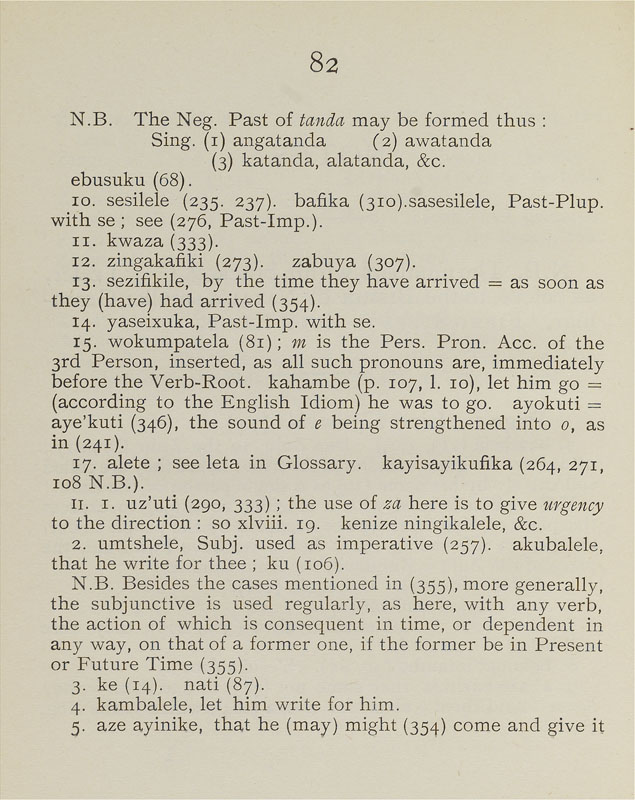82
N.B. The Neg. Past of tanda may be formed thus :
Sing. (i) angatanda (2) awatanda
(3) katanda, alatanda, &c.
ebusuku (68).
10. sesilele (235. 237). bafika (3io).sasesilele, Past-Plup.
with se ; see (276, Past-Imp.).
11. kwaza (333).
12. zingakafiki (273). zabuya (307).
13. sezifikile, by the time they have arrived = as soon as
they (have) had arrived (354).
14. yaseixuka, Past-Imp. with se.
15. wokumpatela (81) ; m is the Pers. Pron. Acc. of the
3rd Person, inserted, as ali such pronouns are, immediately
before the Verb-Root. kahambe (p. 107, 1. io), let him go =
(according to the English Idiom) he was to go. ayokuti =
aye'kuti (346), the sound of e being strengthened into 0, as
in (241).
17. alete ; see leta in Glossary. kayisayikufika (264, 271,
108 N.B.).
II. I. uz'uti (290, 333) ; the use of za here is to give urgency
to the direction : so xlviii. ig. kenize ningikalele, &c.
2. umtshele, Subj. used as imperative (257). akubalele,
that he write for thee ; ku (106).
N.B. Besides the cases mentioned in (355), more generally,
the subjunctive is used regularly, as here, with any verb,
the action of which is consequent in time, or dependent in
any way, on that of a former one, if the former be in Present
or Future Time (355).
3. ke (14). nati (87).
4. kambalele, let him write for him.
5. aze ayinike, that he (may) might (354) come and give it
|








